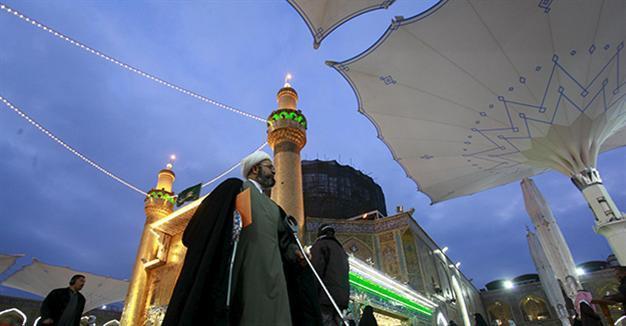Iraq's top Shi'ite cleric suspends weekly political sermons
BAGHDAD - Reuters

Shiite clerics walk to a religious school called (Hawza Ilmiyya) where Shiite Muslim clerics are trained in Najaf south of Baghdad, December 15, 2015. Picture taken December 15, 2015. REUTERS/Alaa Al-Marjani
Iraq's top Shi'ite cleric said on Feb. 5 he would no longer deliver regular weekly sermons about political affairs, which for years have been a source of guidance for Iraqi politicians and his millions of followers.Grand Ayatollah Ali al-Sistani did not give a reason for suspending the sermons, which have lately focused on the government's battle against Islamic State of Iraq and the Levant (ISIL) militants and anti-corruption efforts.
"It has been decided not to continue this on a weekly basis at the present time, but only as demanded by events", Sistani's aide Ahmed al-Safi, who delivered the message, said in a televised speech from the southern shrine city of Kerbala before reciting a prayer.
Sistani, a reclusive octogenarian, enjoys almost mythical status among millions of Shi'ite followers and wields authority that few Iraqi politicians would openly challenge. His political sermons have ranged over issues such as security, elections and the economy.
He called in June 2014 for Iraqis to take up arms against the Sunni ultra-hardline insurgents of ISIL after they seized nearly a third of the country's north and west. Tens of thousands of Shi'ites heeded the call.
Sistani then endorsed the sidelining of former Prime Minister Nuri al-Maliki.
Last summer, he called for an overhaul of Iraq's corrupt political system, emboldening Prime Minister Haider al-Abadi to launch a reform campaign which Sistani later criticised as slow and ineffective.
A spokesman for Sistani's office was not immediately available to comment on the decision. A sermon two weeks ago expressed frustration at inaction in solving Iraq's myriad security, political and economic challenges.
"All these issues have been repeated endlessly until our voices became sore," Sistani said at the time.
A Friday sermon was also broadcast live on state television from the main mosque in Ramadi, the western capital retaken from ISIL insurgents about a month ago following a six-month siege.
Abdul Lateef al-Himayim, head of Iraq's government body overseeing Sunni religious sites, thanked the security services and urged displaced people to return to their homes. More than 3.3 million Iraqis have been displaced by the fighting, most of them Sunnis.
Government forces are still dismantling bombs left by ISIL in Ramadi, the capital of the predominately Sunni province of Anbar, and much of the city's buildings and infrastructure needs to be rebuilt.
A few soldiers stood guard as security and local officials listened to the sermon inside the mosque, which was largely untouched by the fighting. Counter-terrorism forces, which spearheaded the recapture of the city, are still pursuing insurgents in a few northeastern districts.
















